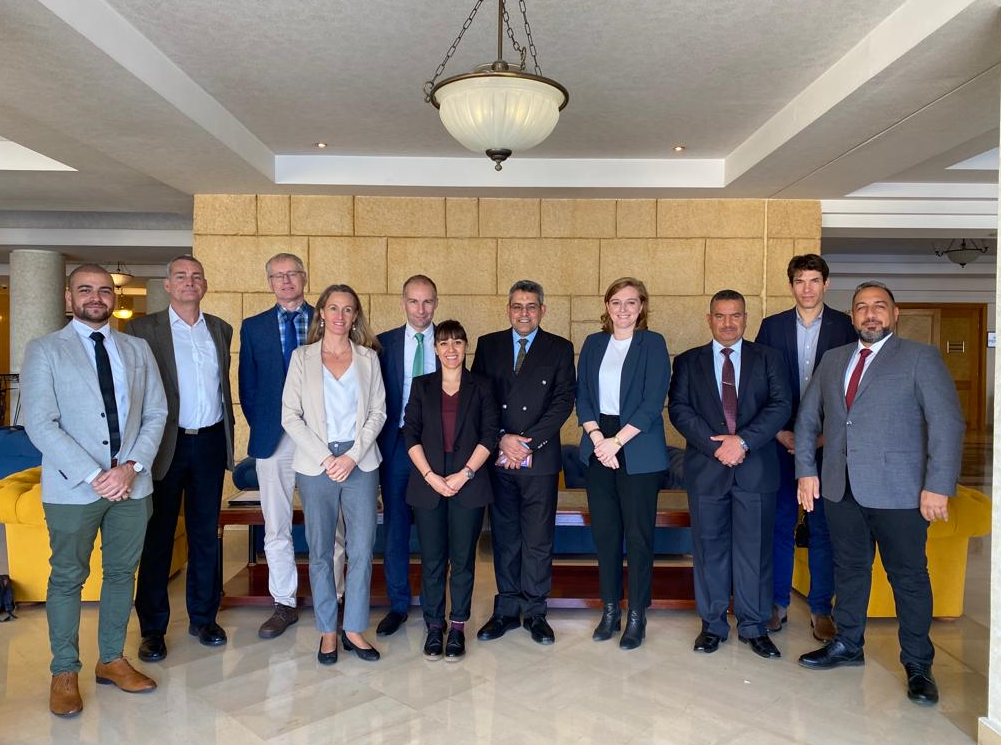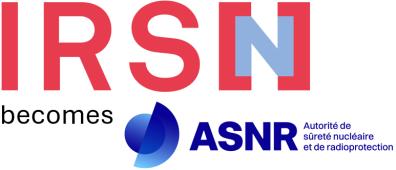The European Union launches the kick-off event of a new project: Supporting capacity building of Radiation Protection Center on the field of Radioactive Waste Management

The European Union launches the kick-off event of a new project: Supporting capacity building of Radiation Protection Center on the field of Radioactive Waste Management.
As part of the Instrument for Nuclear Safety Cooperation (INSC) implemented by the European Commission (EC), the project “Support to the Regulatory Body of Iraq on Radioactive Waste Management, Decommissioning of Nuclear Facilities and Remediation of Contaminated Sites”, was successfully implemented from February 2016 to February 2020 by a consortium led by the National French Agency for Radioactive Waste Management (Andra).
The direct recipient of the new project is the Iraqi Regulatory Body, the Radiation Protection Centre (RPC) within the Iraqi Ministry of Environment (MoEN), beneficiary of the project. The aim of the project is for the RPC to achieve a level of efficiency in line with international standards set by the International Atomic Energy Agency (IAEA) and consistent with the best practices of the European Union.
Following the satisfactory results obtained, a second phase of the project is launched. The consortium is led by Expertise France and includes both Andra and the French Institute for Radiological Protection and Nuclear Safety (IRSN). The 3-year-long second phase kick- started in Tunisia on November 23rd and 24th, 2022, with participants from the beneficiary, the consortium and the EC discussing and setting the project roadmap.
With a total budget of EUR 1, 86 million, this second phase mainly consists in training activities and technical visits to achieve three specific objectives:
- To improve infrastructure rules related to radioactive waste disposal facilities,
- To strengthen the license management of disposal facilities,
- To improve regulation and monitoring in the field of nuclear safety, namely radiation protection in the context of management, decommissioning, and clean-up of radioactive waste.
Background
After the Chernobyl accident in 1986, the European Union launched the Nuclear Safety Programme within the framework of technical assistance to the Commonwealth of Independent States, which, between 1991 and 2006, allocated about 1.2 billion Euros to nuclear safety and security projects. From 2007 to 2013, the European Union extended its support in the field of nuclear safety to third countries under the Nuclear Safety Cooperation Instrument, with a total budget of €524 million. In June 2014, a strategy for the implementation of the second phase of the Nuclear Safety Cooperation Instrument (2014 to 2020) was agreed, with an additional €325 million allocated to nuclear safety projects. Then, in May 2021, a new program of 300 million Euros was approved for the period between 2021 and 2027.
The Iraq Nuclear Decommissioning Project (IDP) began in 2006 following a request submitted by the Government of Iraq to the International Atomic Energy Agency in December 2004, with the aim of assisting Iraq in planning and decommissioning the facilities nuclear affected areas, management of the generated radioactive waste, treatment of contaminated sites, as well as formulation of the relevant legal and regulatory framework. In 2009, the European Union launched a coordinated effort to contribute to this programme.
Implementing partners
Expertise France
As the second largest agency in Europe, Expertise France designs and implements projects that sustainably strengthen public policies in developing and emerging countries. Expertise France, as a pillar-assessed national agency for cooperation and development will therefore ensure a solid and smooth implementation of the project.
IRSN
France’s National Institute for Radiological Protection and Nuclear Safety, IRSN, is a public expert with industrial and commercial activities set up in 2002. The institute is under the joint authority of the Ministry of Defense, Ministry of the Environment, Ministry of Industry, Ministry of Research and the Ministry of Health.
Andra
Established as an independent structure in 1991, the French National Agency for Radioactive Waste Management, Andra, is responsible for identifying, developing, implementing, operating and guaranteeing safe and sustainable management solutions for all French radioactive waste, to protect present and future generations from the risks inherent in such substances.
For more information, please contact:
- Mr. Xavier Pinsolle, European Commission Project Manager - Nuclear Safety Cooperation Instrument Sector, Directorate-General for International Partnerships
- Mrs. Aurélie Noël, Project Manager for Expertise France
- Dr. Sabah, Iraqi Ministry of Environment, Radiation Protection Center, Director General
